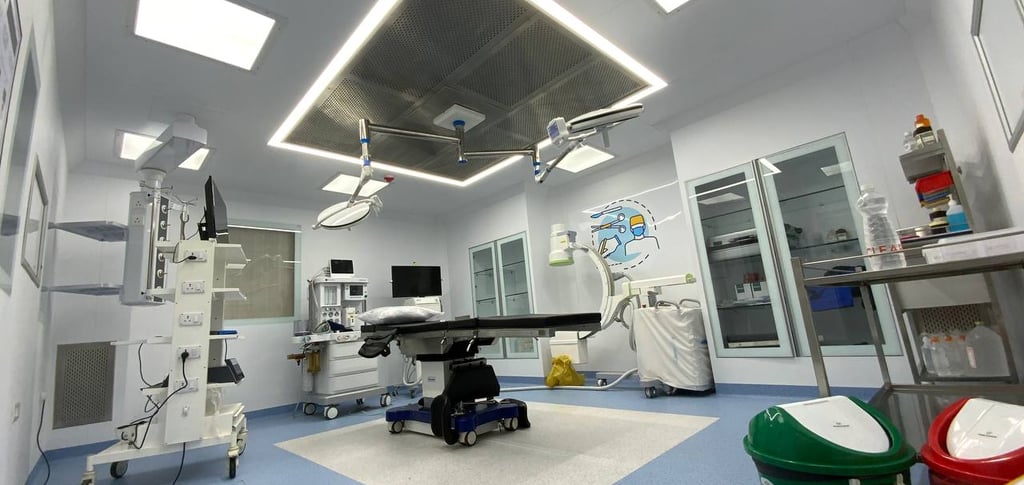Modular OT vs. Traditional OT: Redefining Surgical Excellence
10/31/20251 min read


Understanding the Shift in Surgical Environments
The evolution of healthcare design has greatly impacted the functionality and efficiency of operation theatres (OTs). Historically, traditional OTs were constructed on-site through extensive civil works, which provided a certain level of flexibility in customization but came with several drawbacks. These included prolonged installation periods, challenges around managing construction dust, and complexities related to ongoing maintenance.
The Advantages of Modular OTs
In contrast, modular OTs represent a significant advancement in operating room design and construction. Constructed with prefabricated panels, modular OTs ensure seamless finishes that facilitate enhanced hygiene and easier cleaning routines. One of their most remarkable features is the laminar airflow system. This innovative ventilation technology reduces airborne contaminants, thereby promoting patient safety and elevating infection control standards.
Additionally, the integrated medical gas systems (MGS) within modular OTs streamline the surgical process significantly. These systems enable medical personnel to access vital gasses like oxygen and nitrous oxide without the complications found in more traditional setups. By optimizing the flow of essential resources, modular OTs can improve the efficiency with which surgeries are performed, allowing more procedures to take place within a given timeframe.
Long-term Benefits and Future Directions
As we navigate an era where precision and hygiene are paramount, modular OTs emerge as the forefront of surgical innovation. Their construction not only facilitates faster installation but also promises long-term durability, which can ultimately lead to substantial cost savings for healthcare facilities. The ability to expand or adapt modular OTs further enhances their appeal to hospital administrators who are navigating the ever-changing landscape of healthcare needs.
As we consider the future of surgical excellence, it becomes clear that modular OTs are not merely a trend but a necessary evolution in surgical environments. By addressing the critical aspects of infection control, operational efficiency, and adaptability, modular OTs are setting a new standard in the world of surgery. The debate between modular and traditional OTs is transforming into a discussion about best practices in surgical care, positioning modular OTs as pivotal to achieving extraordinary patient outcomes.
Services
© 2024. All rights reserved.
Products


We're Making it easier to find Better Medical Devices
Find us on Map:
Contact Information
Phone: +91 9029457428 | +91 9833236604 | +91 7506374381
Email : medevices2018@gmail.com | sales@medevices.in
